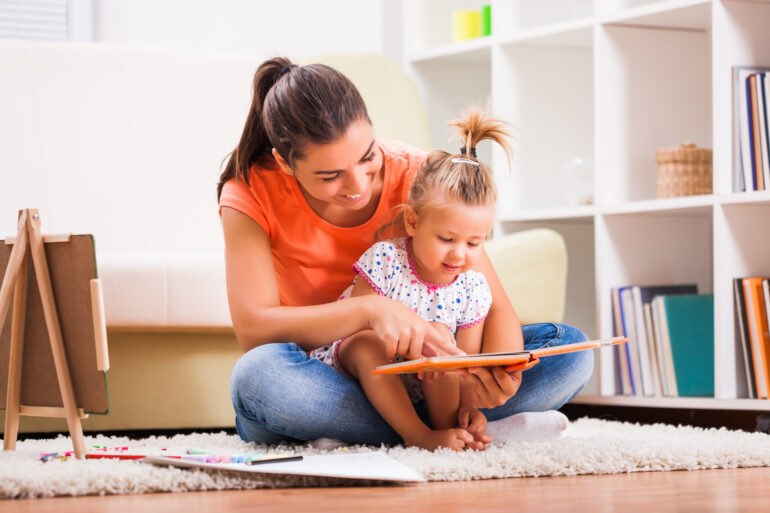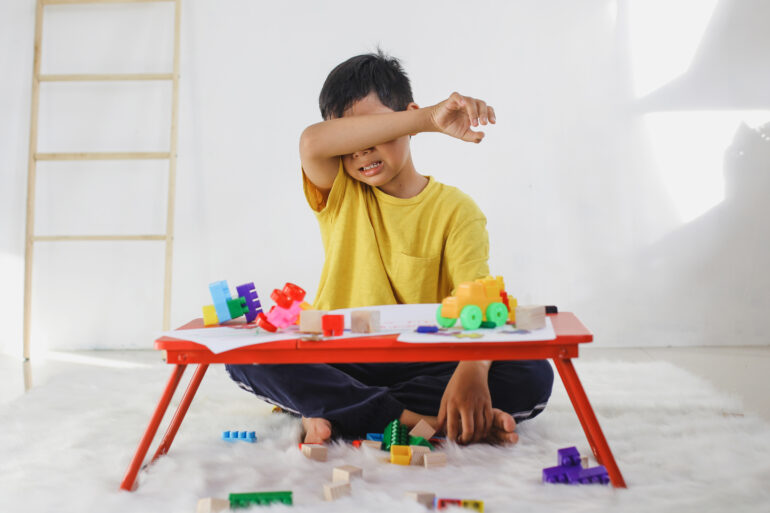The words we say to our children can have a profound effect on their emotional and psychological well-being. We can get caught up in common phrases or habits, but it's important to be aware of the impact our words can have.
Here are 20+ words that never, but really never <
1. "That's not how it's done. Let me show you.”
This can send the message that the child is not capable of learning on his own and can work against building his confidence.
2. “What's wrong with you?”
This phrase can lead a child to believe that something is wrong with them and can have a lasting effect on their self-esteem.
3. "Exercise is the work of a master."
While parents want to encourage their child to do their best, this phrase can put unnecessary pressure on them.
4. "You can be whatever you want to be."
While it's important to encourage big goals, it's not always wise to tell kids they can be anything they want. Studies have shown that setting overly ambitious goals can be harmful and have significant negative side effects.
5. "Then I'll leave you here."
This phrase can make a child feel less safe and believe that you may not always be there to protect and care for them.
6. “I do everything for you.”
This statement can harm the child's emotional development and make him feel that he has nowhere to vent his hurt and anger.
7. “A 4 is fine, but a 5 is a better score.”
Putting all the emphasis on grades and achievement can backfire, causing children to do worse in school.
8. "Eat peas, they are very healthy."
If you tell children that food is healthy, they may assume that anything healthy will taste bad and reject it.
9. “Stop crying right now.”
Allowing babies to cry and show their emotions is important for their emotional development.
10. “You're so lazy.”
Children are not lazy and there is often a reason why they cannot achieve what is asked of them.
11. "Hurry up, we're in a hurry."
This phrase usually doesn't get anything done faster except make the kids feel more stressed.
12. “Big boys/girls are not afraid.”
This phrase invalidates your child's feelings and dismisses them, making your child feel like you are not hearing them.
13. “Don't be such a baby.”
Children should not be expected to act like adults because they are not adults.
14. "It will be as I say."
Authoritarian parents are more likely to raise disrespectful, delinquent children who do not see them as legitimate authorities than parents who listen to their children and gain their respect and trust.
15. "You live under my roof, you follow my rules."
Threatening to kick your child out of the house can be emotionally damaging and usually does not result in positive behavior change.
16. "You are just like your mother/father."
Comparing a child to a parent can create a divide where the child must identify or choose a side to please a particular parent.
17. “I told you so.”
Bragging about being right never benefits children.
18. “I wish I was more like my sister/brother”
Every child has strengths and challenges that are unique to them and should not be compared to others.
19 “You are my perfect little angel.”
Expecting perfection can damage a child's self-esteem and make them less likely to take risks and try new things out of fear of failure.
20. “You're so smart.”
Although this phrase seems like a nice compliment, it teaches children that they have a natural gift that is separate from hard work and can lead them to avoid situations where they are not sure they will succeed.
21. “You really are an idiot.”
Calling a child a derogatory name can negatively affect his mood, self-esteem, confidence and relationship with his parents.
22. "I hate math, I've never been good at it."
Parents' attitudes can affect a child's academic performance.
23. "Mommy is not crying, everything is fine."
Hiding negative emotions and pretending to be positive can damage your relationship with your child and make them feel like they can't express their own emotions.
The words we say to our children matter, and paying attention to our language can help us be better parents. It is important to encourage, support and value our children's emotions and efforts. It is also important to avoid harmful phrases and habits that can negatively affect their emotional and psychological well-being.











